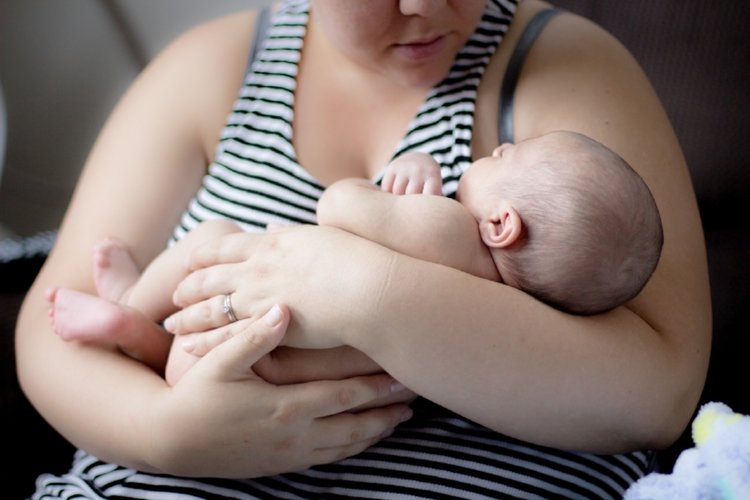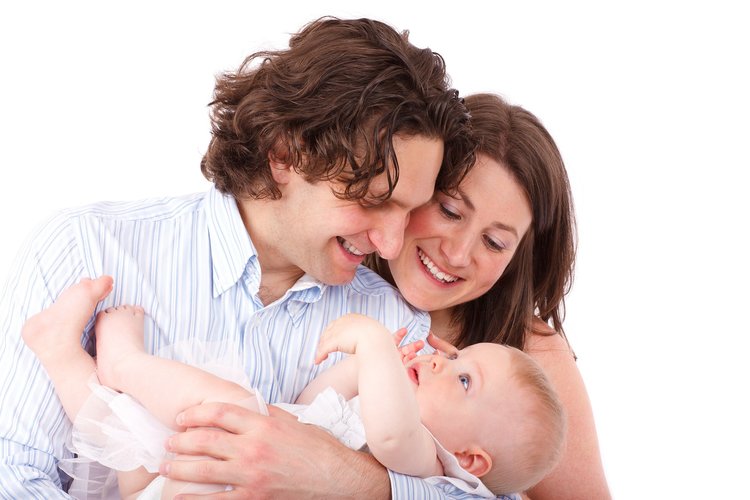I can’t believe it’s been a few months since my last (and only) post. My goal was to blog every month, so I’m going to strive to do better! I thought I would start a mini-series on early language development. One of my reasons for going into private practice is to help educate parents of young children and help children get the services they need as soon as possible. There is so much research out there to show that early intervention is key and has the most impact on later language and literacy skills which ultimately improves school success. For this post, I’m going to share a detailed list of expected language skills from birth to 12 months. An incredible amount of communication is happening before children begin to talk (which typically happens around 12 months) and I want to share with you what to expect and a few ways to encourage language at each stage.
2 months
What to Expect:
- coos and makes gurgling sounds
- smiles when you speak to him/her
- turns head towards sounds and startles at loud noises
- has different cries for different people
What to Do:
- talk to your baby then pause and wait for him/her to smile or coo, then talk again
- talk to your baby as much as you can- talk about what you are doing when you are with your baby
- make the sounds your baby makes and encourage back and forth sound play

4 months
What to expect:
- begins to babble and uses different intonation when babbling
- starts to copy sounds he/she hears
- cries in different ways to communicate different needs
What to do:
- set aside time each day to read and sing to your baby
- show excitement when your baby vocalizes
6 months
What to expect:
- babbling with different vowel sounds (“ah,” “oh,” “ee”) and some early consonants (p, b, m)
- responds to own name
- enjoys turn taking with others during sound play
What to do:
- get on the floor each day and play, play, play
- when your baby looks at something, point and talk about it using simple language (“a book” or “you see a book”)
- continue “reciprocal play”- do what your baby does to encourage development of turn-taking and imitation

9 months
What to expect:
- understands “no”
- makes a lot of different sounds in babbling such as “mamamamamama” and “babababababababa”
- points to objects
What to do:
- talk about objects and actions you are doing during routines such as bath time, meal time, and doing housework
- talk about how your child is feeling- “I’m sorry you’re sad we can’t go outside, but it’s raining today”
- play games with “my turn, your turn”
12 months
What to expect:
- your child’s first words such as “mama,” “dada,” “bye,” or “uh-oh”
- responds to simple directions such as “come here” and “sit down”
- uses many gestures such as waving, clapping, and shaking his/her head “no”
What to do:
- read with your child every day
- expand upon what your child says by 1-2 words- if your child says “ball” say “big ball” or “I see the ball”
- use varied intonation and facial expressions when communicating with your child- act silly!
Now you know what communication looks like from birth- 12 months and some of my favorite suggestions for building language at home. A lot happens in the first year to set the stage for talking and this is also the time when the brain is most ready to learn so talk, talk, talk and play, play, play!
Be Inspired,
Sarah
Sources: CDC Milestone Moments Guide and ASHA’s Communicating with Baby Campaign
